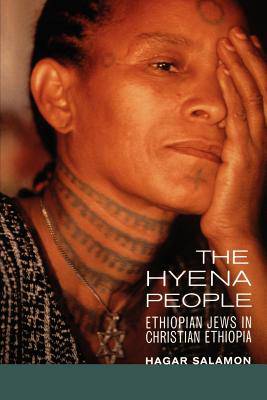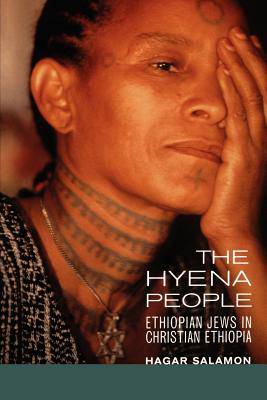
Bedankt voor het vertrouwen het afgelopen jaar! Om jou te bedanken bieden we GRATIS verzending (in België) aan op alles gedurende de hele maand januari.
- Afhalen na 1 uur in een winkel met voorraad
- In januari gratis thuislevering in België
- Ruim aanbod met 7 miljoen producten
Bedankt voor het vertrouwen het afgelopen jaar! Om jou te bedanken bieden we GRATIS verzending (in België) aan op alles gedurende de hele maand januari.
- Afhalen na 1 uur in een winkel met voorraad
- In januari gratis thuislevering in België
- Ruim aanbod met 7 miljoen producten
Zoeken
Omschrijving
The Jews (Falasha) of northwestern Ethiopia are a unique example of a Jewish group living within an ancient, non-Western, predominantly Christian society. Hagar Salamon presents the first in-depth study of this group, called the "Hyena people" by their non-Jewish neighbors. Based on more than 100 interviews with Ethiopian immigrants now living in Israel, Salamon's book explores the Ethiopia within as seen through the lens of individual memories and expressed through ongoing dialogues. It is an ethnography of the fantasies and fears that divide groups and, in particular, Jews and non-Jews.
Recurring patterns can be seen in Salamon's interviews, which thematically touch on religious disputations, purity and impurity, the concept of blood, slavery and conversion, supernatural powers, and the metaphors of clay vessels, water, and fire.
The Hyena People helps unravel the complex nature of religious coexistence in Ethiopia and also provides important new tools for analyzing and evaluating inter-religious, interethnic, and especially Jewish-Christian relations in a variety of cultural and historical contexts.
Recurring patterns can be seen in Salamon's interviews, which thematically touch on religious disputations, purity and impurity, the concept of blood, slavery and conversion, supernatural powers, and the metaphors of clay vessels, water, and fire.
The Hyena People helps unravel the complex nature of religious coexistence in Ethiopia and also provides important new tools for analyzing and evaluating inter-religious, interethnic, and especially Jewish-Christian relations in a variety of cultural and historical contexts.
Specificaties
Betrokkenen
- Auteur(s):
- Uitgeverij:
Inhoud
- Aantal bladzijden:
- 168
- Taal:
- Engels
- Reeks:
- Reeksnummer:
- nr. 13
Eigenschappen
- Productcode (EAN):
- 9780520219014
- Verschijningsdatum:
- 7/12/1999
- Uitvoering:
- Paperback
- Formaat:
- Trade paperback (VS)
- Afmetingen:
- 153 mm x 228 mm
- Gewicht:
- 285 g

Alleen bij Standaard Boekhandel
+ 108 punten op je klantenkaart van Standaard Boekhandel
Beoordelingen
We publiceren alleen reviews die voldoen aan de voorwaarden voor reviews. Bekijk onze voorwaarden voor reviews.









